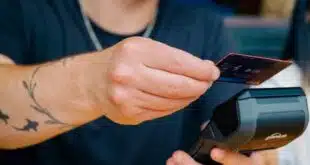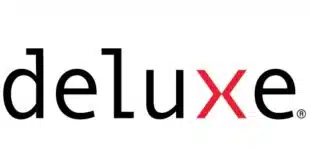Prepaid debit cards linked to tax-advantaged employee flexible-spending accounts (FSAs) for medical expenses have been growing quickly in recent years, but they got a big boost this week when leading retailer Wal-Mart Stores Inc. announced it had implemented technology that will spare the customer from sorting FSA-qualifying items from ineligible ones when paying with such debit cards at Wal-Mart and Sam's Club warehouse stores. Bentonville, Ark.-based Wal-Mart says its Inventory Information Approval System, or IIAS, works by automatically flagging FSA-eligible health-care items, which have unique identification numbers, as items are scanned during the checkout process. The technology reads the product's tag containing the stock-keeping unit (SKU) number and is based on the same radio-frequency identification (RFID) technology that Wal-Mart has implemented throughout its inventory-management system, a spokesperson tells Digital Transactions News. Once all items have been scanned, a total is displayed for the entire transaction showing both FSA-approved and non-FSA merchandise, according to a Wal-Mart news release. If the customer wishes to use an FSA card for payment of FSA-eligible merchandise, she swipes her card at the payment terminal and then pays for the non-FSA merchandise with another form of payment. Wal-Mart claims to be the first general retailer to roll out such a system, which went live Jan. 2. “As usual, we lead the industry with innovations that benefit both the consumer and their employer by offering a streamlined solution for FSA card acceptance,” boasts the spokesperson. The company, however, is not the first merchant to automatically identify FSA-eligible merchandise, according to Brian Riley, a senior analyst with Needham, Mass.-based The TowerGroup Inc., an editorially independent research and consulting affiliate of MasterCard Worldwide. That honor, at least among larger chains, goes to Deerfield, Ill.-based Walgreen Co., according to Riley, who follows the prepaid market. Walgreen is the nation's largest drug-store chain by revenues, Nonetheless, Riley says Wal-Mart's new system was no small effort. The chain has about 3,800 stores in the U.S. and a vast network of warehouses and suppliers. “It really amplifies how important the card-processing business is to them,” he says. “To accommodate the tag takes a lot of work on their part. You're labeling everything from LifeSavers to televisions.” The Wal-Mart spokesperson did not have figures on how much the retailer spent to roll out the technology. A long line of retailers is expected to follow Wal-Mart and Walgreen. New Internal Revenue Service regulations require merchants that sell FSA-qualifying medical products be able to identify them by the end of 2007, according to Riley. Apart from the difficulty on consumers' part in knowing which items are FSA-eligible, one reason for the rules is that in recent years some customers of retailers with in-store pharmacies have tried to pay for non-qualified items by bringing everything to the pharmacy department. On a card transaction, the pharmacy's merchant category code would indicate the sale was from a medical merchant. The IRS wants to take that consumer “self-adjudication” on what is and is not tax-advantaged out of the process, says Riley. TowerGroup predicts the charge volume on FSA cards will grow significantly. The firm estimates about 3.5 million cards are now in use and that the market will grow to more than 12 million cards by 2010, while the qualified spend volume will exceed $100 billion.
Check Also
Zoho Launches Zoho Payments In the U.S. Market
Zoho Corp., an Indian multinational software company, is launching Zoho Payments in the United States. …





